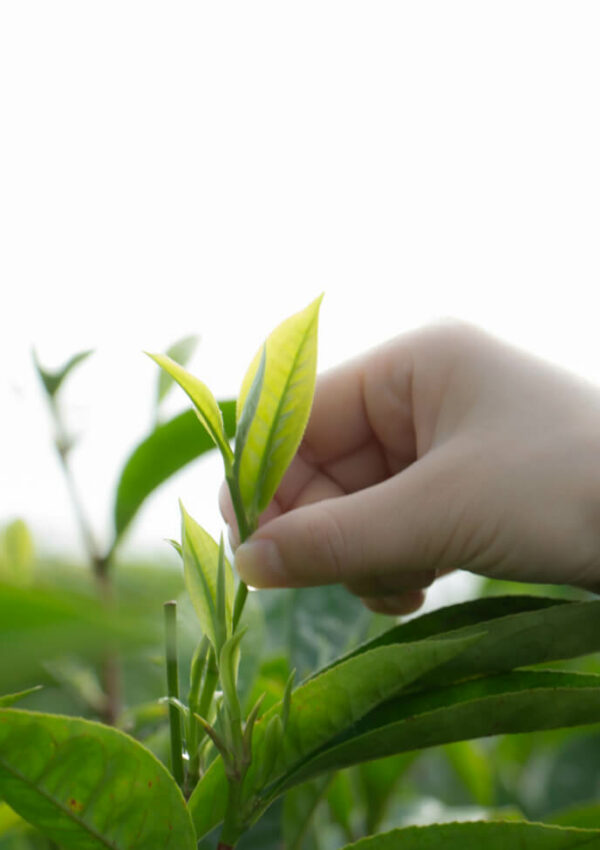
Tea’s benefits for health have been known for centuries. While today tea is celebrated as the 2nd most popular beverage in the world, tea initially started its journey as medicine.
Tea leaves were chewed or cooked with porridge for their medicinal value and often mixed with onion, salt, ginger, etc.
With the help of modern science, we now know that tea is filled with several bioactive compounds that offer many health benefits.
Tea and tea products are also popularly used in cosmetics for healthy skin and hair.
While there are countless health and beauty claims surrounding tea and its compounds, not all are backed by science.
In this article, we will look at how tea benefits health and beauty according to science. Let’s get started!
In this article, we’ll explore:
- The Bioactive Compounds In Tea
- Tea Protects Against Heart Disease
- Tea Can Protect Against Cancer
- Tea Helps Fight Obesity
- Tea Has Antioxidant Properties
- Tea Helps Manage Diabetes
- Tea Protects The Brain And The Mind
- Tea Helps Fight Germs
- Tea Fights Inflammation
- Tea Can Protect Teeth And Bones
- Tea Can Improve Sleep And Help Depression
- Tea Can Slow Down Ageing
- Tea Can Improve Women’s Reproductive Health
- Tea Can Protect Skin From The Sun And Fight Signs Of Ageing
- Tea Can Help With Acne
- Tea Can Be Good For Hair
Disclaimer: This post was written with the help of ChatGPT, but all content has been curated, heavily edited, and fact-checked by the author.
The information in this post is not intended to be a substitute for professional medical advice, diagnosis, or treatment. The consumption and/or application of tea and/or tea-related products and their purported benefits may vary from person to person.
Always seek the advice of your physician or other qualified health provider with any questions you may have regarding a medical condition.
Here Are Some Of The Bioactive Compounds In Tea Responsible for Tea Health Benefits:
1. Tea Flavonoids
Flavonoids or polyphenols are natural compounds found in many fruits and veggies.
In tea, there are different types like flavonols, theaflavins, and anthocyanins. They give tea its smooth, velvety texture.
2. Catechins
Catechins are a type of flavonoid found in green tea.
When green tea is oxidized to black tea, catechins turn into theaflavins, thearubigins, and proanthocyanidins.
Catechins can protect the liver against fibrosis (scarring of liver tissue that impairs its function).
Catechins also work as antioxidants and detoxify Reactive Oxygen Species (ROS). Imbalanced ROS can cause cell damage and speed up the aging process.
3. Flavonols
Flavonol (another type of flavonoid) derivatives could protect against heart disease in several ways.
These are: stopping the oxidation of certain fats in the blood, reducing the clumping of blood cells, and lowering cholesterol levels in the blood.
4. Theaflavins
Theaflavins are found in black tea.
These compounds offer many health benefits, including reducing fat and preventing diseases like cancer, atherosclerosis, obesity, bacterial infections, osteoporosis, viral infections, and dental decay.
5. Thearubigins
Studies show that thearubigins (give black tea’s red color) can significantly lower cholesterol levels in the blood, especially in people with heart problems.
Thearubigins might also help prevent mutations in our DNA, fight cancer, act as antioxidants, reduce inflammation, and improve digestion.

6. Polysaccharides
Polysaccharides are like special helpers found in tea.
Some studies say that tea with fewer polyphenols but more polysaccharides can be even better at fighting off bad stuff in our bodies.
Plus, if you mix polysaccharides with selenium, it can boost their power even more!
These polysaccharides might make tea even better for our immune system, help control diabetes, fight cancer, act as antioxidants, and even help with weight management.
7. L-theanine
L-theanine is an amino acid. Amino acids are the building blocks of proteins, except L-theanine actually can’t be found in proteins.
White tea has a higher amount of L-theanine than other teas. Scientists are really interested in all the ways L-theanine from tea could be good for us.
L-theanine does many good things for our health, like protecting our brain cells, helping us relax, lowering cholesterol, controlling blood pressure, and balancing out the effects of caffeine.
8. Gallic Acid
Gallic acid is a type of chemical found in fruits, nuts, red wine, and tea. Black tea has more gallic acid than green tea.
Gallic acid can do lots of good things for our health, like reducing inflammation and fighting cancer. It’s also helpful for brain, stomach, metabolism, and heart problems.
9. Saponin
Tea saponins are another bioactive compound found in tea. They can boost our immune system, fight cancer, and act like antioxidants, which keep us healthy.

How Tea Benefits Health
1. Tea Protects Against Heart Disease
Drinking tea can help keep your heart healthy. Studies have shown that tea can lower levels of uric acid, C-reactive protein, glucose, and bad cholesterol in our blood.
Black tea has even been found to improve blood flow in people with heart problems.
Green tea has benefits too! Taking green tea extract for a few weeks has been shown to lower blood pressure, reduce inflammation, and make our blood vessels healthier.
L-theanine, an amino acid found in tea, can help lower blood pressure too. And certain compounds in tea, like theaflavins and EGCG, can reduce stress on our blood vessels and help them relax.
Another substance in tea, called theobromine, can raise good cholesterol levels and lower bad cholesterol levels.
So, drinking tea regularly can be good for your heart!
2. Tea Can Protect Against Cancer
Cancer happens from the rapid, abnormal growth of cells. Most polyphenols in tea can slow down how cells grow.
Studies with animals show that the good stuff in green tea can fight many types of cancer, like lung, mouth, stomach, and more.
Green tea works by controlling how our DNA behaves, stopping bad cells from growing too much, and even making them die when they should.
L-theanine in tea might help slow down cancer. It works by changing how cancer cells take in glutamate and making them less able to resist drug treatments.
When cancer spreads or metastasizes, it’s a big problem.
But green tea might help stop this too. A compound in green tea called EGCG stops certain enzymes that help cancer cells spread.
Drinking green tea can lower the chance of getting breast cancer by about 12%. Having three cups of tea a day might help reduce breast cancer incidence.
But not all studies agree. Some studies have not found tea to protect against cancer.
3. Tea Helps Fight Obesity
Obesity affects people when the body takes in more energy than it uses.
Polyphenols, like EGCG in green tea or methylated EGCG in oolong tea, have shown promise in regulating obesity by affecting energy metabolism and fat storage.
Tea polyphenols also affect the gut bacteria to produce short-chain fatty acids. This activates fat metabolism pathways and contributes to weight regulation.
Certain compounds in tea, such as TF1 and catechins, stimulate thermogenesis (producing heat by burning calories) and enhance energy expenditure, which can help in weight loss.
Green tea extract has been observed to stimulate the nervous system, increase energy expenditure, and promote fat oxidation, which can help in weight management.
Drinking black tea has been linked to increased energy expenditure, inhibition of fat synthesis, and regulation of metabolism, potentially contributing to weight control.

4. Tea Has Antioxidant Properties
Tea has polyphenols that help fight harmful substances in our bodies called free radicals.
These polyphenols, like EGCG and theaflavins, have strong antioxidant powers that protect our cells.
Green tea particularly has lots of EGCG, which is great at getting rid of free radicals. Theaflavins on the other hand are found in black tea.
5. Tea Helps Manage Diabetes
Tea is also good for preventing and managing diabetes. Drinking green tea can lower blood sugar levels and help our bodies make more insulin.
Oolong and black tea can also help prevent type 2 diabetes. Black tea extracts can also help restore normal insulin levels and keep blood sugar in check.
Some parts of tea, like theaflavins and catechins, can stop enzymes in our intestines from breaking down sugar, which helps control blood sugar levels.
6. Tea Protects The Brain And The Mind
For centuries, tea has been used spiritually to make the mind more relaxed and alert.
Tea has several compounds that help keep our brains healthy and improve our moods.
One of these is L-theanine, which helps make chemicals in our brain that make us feel good and relaxed.
L-theanine also helps balance out the effects of caffeine, so we don’t feel jittery. Studies show that L-theanine can even improve memory and protect our brains from stress.
Certain things in tea, like theaflavic acid and catechins, can protect our brain from diseases like Alzheimer’s and Parkinson’s. They do this by reducing inflammation and stopping harmful proteins from building up in our brains.
Nerolidol in tea can protect our brains from Parkinson’s disease too. It does this by reducing inflammation, protecting our brain cells, and balancing out certain chemicals.
Tea also helps control our body’s internal clock, which can also help prevent brain diseases.
7. Tea Helps Fight Germs
Tea has special components that can fight off bacteria and viruses, like catechins. Catechins can stick to proteins and stop bacteria and viruses from attaching to your cells.
Tea catechins can protect against the flu. Drinking black tea also has been shown to protect against Helicobacter pylori infection.

8. Tea Fights Inflammation
Some parts of tea, like catechins and theaflavins, can reduce swelling and inflammation in our bodies, which helps keep us healthy.
9. Tea Can Protect Teeth And Bones
A germ called Porphyromonas gingivalis causes gum disease, which makes the tissue around teeth infected. This infection leads to swelling and damage, which can make teeth loosen.
Tea components can fight against this germ, protecting the gums and preventing damage to the tissue.
Drinking tea is also good for your bones, especially for older women. It helps make bones stronger and denser, which is important for preventing osteoporosis, especially in women after menopause.
10. Tea Can Improve Sleep And Help Depression
Drinking tea regularly might help reduce the chances of feeling depressed. Studies have found that people who drink tea often are about 40% less likely to experience depression compared to those who don’t drink tea much.
Depression is related to chemicals in the brain like dopamine and serotonin. Tea’s natural compounds can affect these chemicals, which can improve mood.
Tea also helps to reduce inflammation in the body, which is linked to depression. It may even affect the way our gut bacteria work, which can also impact mood and improve sleep.
Overall, tea can help balance chemicals in the brain and body, making us feel happier and more motivated.
11. Tea Can Slow Down Ageing
A study found that drinking three cups of tea each day might help you live longer.
Researchers asked nearly 14,000 people in the UK and China about their tea habits. They discovered that people who drank tea regularly seemed to age more slowly.
These tea drinkers were often men who ate well, drank alcohol moderately, and had fewer problems with anxiety and sleep.
However, it’s important to note that this study only observed people’s habits; it didn’t prove that drinking tea directly slows aging.
People who stopped drinking tea seemed to age faster, but more research is needed to understand why.
12. Tea Can Improve Women’s Reproductive Health
EGCG, a substance found in green tea, can help improve women’s reproductive health.
Green tea may help with conditions like endometriosis by preventing blood vessel growth, reducing scarring, slowing cell growth, and encouraging cell death.
Additionally, Green tea can also support ovulation and decrease cysts in PCOS. It may also help ease pain and lower stress hormone levels in conditions like dysmenorrhea.
However, more research is needed in clinical trials to fully understand how green tea can benefit these health issues in humans.

How Tea Benefits Beauty
13. Tea Can Protect Skin From The Sun And Fight Signs Of Ageing
Photoaging is when your skin ages faster because of things like sunlight and pollution.
Taking herbal baths with black tea can give your skin an antioxidant boost and might even offer some protection from the sun.
Black tea benefits skin and can help reduce wrinkles and signs of getting older.
You can also use black tea directly on your skin by putting tea bags under your eyes to reduce puffiness and dark circles.
It also gives your skin important vitamins and minerals that keep it healthy.
There’s some evidence that certain parts of green tea benefits skin as it can protect your skin from aging caused by sunlight.
However, some studies show that using green tea on your skin or taking it orally might not have much effect on wrinkles and other signs of aging.
14. Tea Can Help With Acne
Acne is a common skin problem caused by hormones, genetics, and bacteria.
The caffeine in black tea can fight off viruses, which helps prevent skin infections like pimples.
Some studies suggest that green tea might help with acne when used on the skin. But, more research is needed to know for sure.
15. Tea Can Be Good For Hair
Black tea rinses have become very popular recently. Black tea is known to promote a healthy scalp, hair growth, and shiny hair.
Green tea has a lot of different healthy compounds, like flavonoids and catechins. One of these, called epigallocatechin gallate, has been shown to help hair grow better.
Green tea is also believed to fight dandruff.
So far, we have discussed the many ways that true tea benefits health and beauty. True tea is any tea that comes from the Camellia sinensis plant.
All tea can be classified into one of 6 types: black, oolong, green, white, yellow, and dark.
The bioactive compounds that we discussed earlier are present in these teas in varying degrees as the process by which each tea is made affects these compounds.
Therefore, each type of tea comes with its own long list of health benefits.

How Herbal Tea Benefits Health
Outside of the 6 true teas, there is the infinite world of herbal teas or tisanes. Here are 10 popular herbal teas with their health benefits:
1. Chamomile tea:
People often drink chamomile tea when they want to feel relaxed or sleep better and worry less.
2. Peppermint tea:
When your stomach feels uncomfortable or bloated, peppermint tea might help you feel better. It can settle your stomach and make you feel less nauseous.
3. Ginger tea:
Ginger tea is like nature’s medicine for when you feel sick to your stomach or your body feels swollen and sore. It can calm your stomach and reduce swelling in your body.
4. Rooibos tea:
Drinking rooibos tea gives your body extra help in fighting off sickness and making your heart stronger. It also helps your body not to swell up so much.
5. Hibiscus tea:
Hibiscus tea is like a vitamin boost for your body. It’s full of vitamin C and other good things that can help lower your blood pressure and keep your heart healthy.
6. Lemon balm tea:
Just like the smell of lemons can make you feel relaxed, lemon balm tea can help calm you down and make it easier to fall asleep.
7. Echinacea tea:
Echinacea tea is like giving your immune system a big hug. It can make you feel better when you have a cold and help you get over it faster.
8. Dandelion tea:
Dandelion tea helps your body get rid of extra water and reduce bloating. It’s like a natural way to feel less puffy.
9. Sage tea:
Sage tea is like a superhero for your body. It fights off swelling and helps your brain work better, so you can remember things more easily.
10. Turmeric tea:
Turmeric tea fights off swelling and pain in your body, makes your heart stronger and helps your brain work better.
FAQ On Tea Benefits
Is It Good To Drink Tea Every Day?
So, is it good to drink tea every day? Yes! According to a recent study, compared to people who don’t drink tea, people who drink two or more cups of tea per day were linked with a lower risk of death.
What Tea Has The Most Health Benefits?
It would seem green tea has the most health benefits. Green tea is rich in antioxidants and all other good stuff because of the way it is prepared.
But green tea also has been researched much more extensively compared to other types of tea. Science might tell us something different in the future.
When Is The Best Time To Drink Tea?
The best time to drink tea is during the day, especially if it’s caffeinated, to not disrupt sleep and your body’s natural clock.
Experts recommend waiting at least an hour after you wake before ingesting caffeine and avoiding caffeine 6-7 hours before bedtime.
In this series of blog posts, we are going to explore all the different ways tea benefits health, skin, and hair. We will look at true teas, herbal teas, fermented teas, and tea-related products.
Keep reading to find out how tea benefits health and beauty from the inside and outside! And keep sipping on that tea!
References:
- Molecular Mechanisms Underlying Health Benefits Of Tea Compounds
- Efficacy and Safety of Oral Green Tea Preparations in Skin Ailments: A Systematic Review of Clinical Studies
- Potential Bioactive Components and Health Promotional Benefits of Tea (Camellia sinensis)
- Green Tea for Hair: A Complete Guide






Leave a Reply